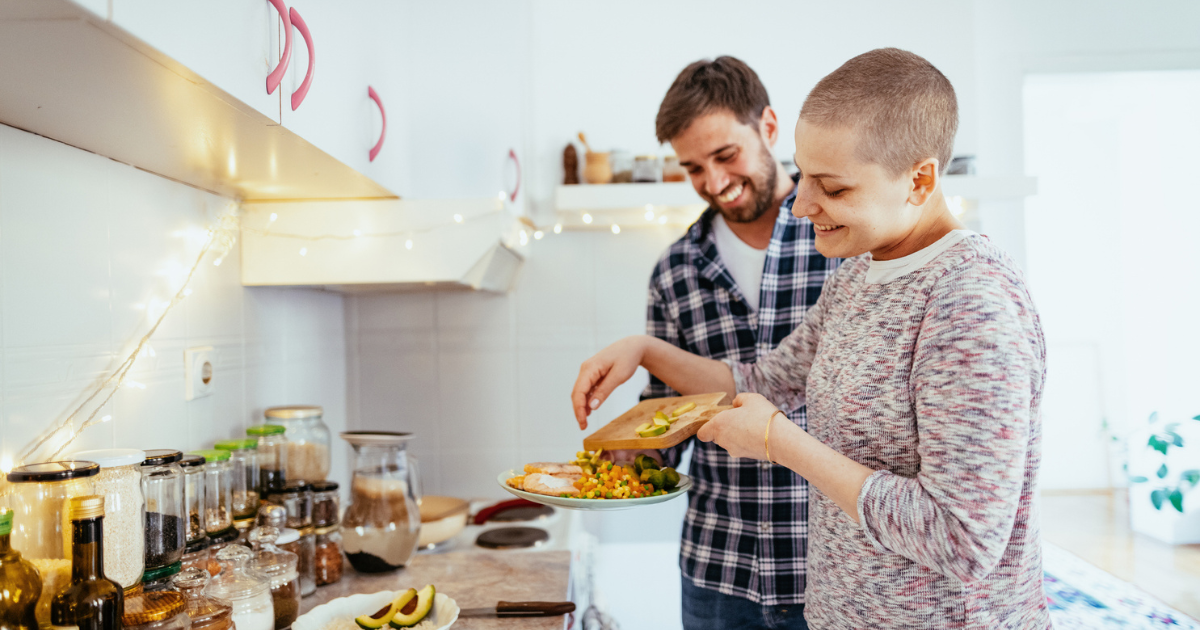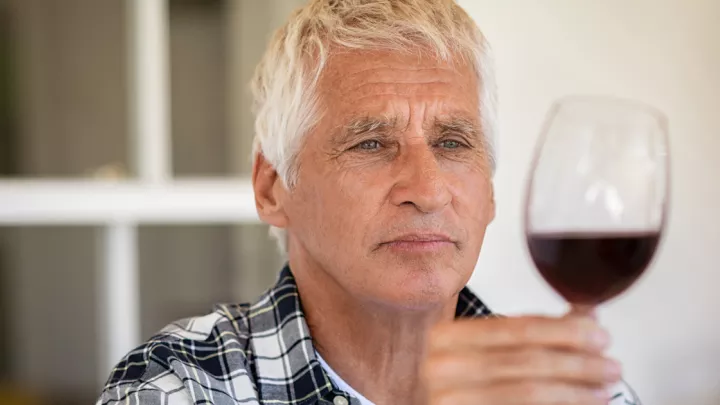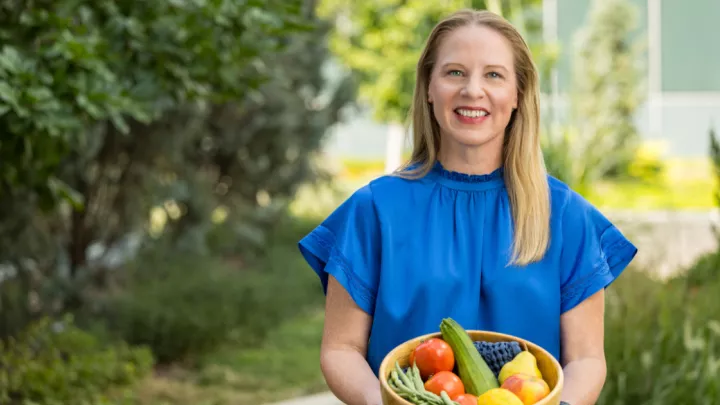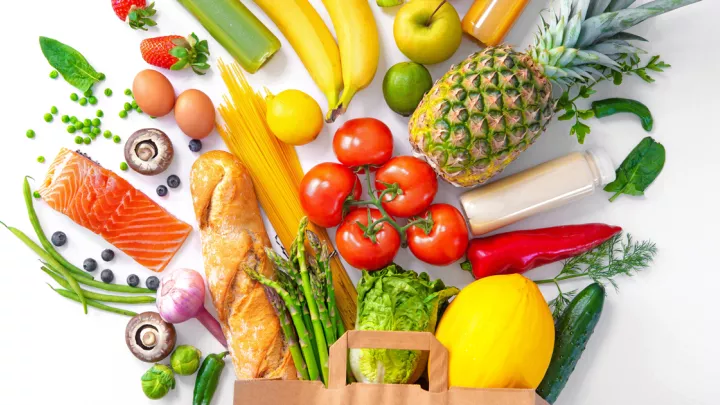Mental health, stress and fatigue: Does nutrition matter?

A cancer diagnosis can affect the mental health of patients, families and caregivers. Side effects of cancer treatment can cause feelings of anxiety, depression, stress and fatigue. It’s important to recognize changes in emotional well-being and stress or energy levels, even after cancer therapy ends. Fortunately, nutrition plays an important role in a cancer patient’s journey during and after treatment.
Eating tips if you’re feeling fatigued:
- Choose foods that are easy to eat and don’t require much chewing.
- Stock your fridge or pantry with easy-to-prepare foods such as yogurt, applesauce, oatmeal packets, tuna and chicken pouches and cottage cheese with canned fruit.
- Keep snacks nearby.
- Drink fluids to stay hydrated.
- Try new foods that may spark your appetite.
- Ask family or friends to help prepare meals.
It’s normal to feel depressed, anxious, afraid or helpless during this life-changing experience. Feelings like these may affect your appetite, interest in eating, cooking and shopping. There are several ways you can cope with these feelings through nutrition.
Using nutrition to support mental health:
- Eat your favorite foods on days that you feel well.
- Share meals with family or friends. Try a video-call dinner date with those you haven’t seen in a while.
- Be mindful of using food to cope with emotions and find alternate positive activities like calling a friend or going for a walk.
- Nutrient-rich diets, like the Mediterranean diet pattern, or those with high fruit and vegetable intake may be associated with better mental health.
Nutrition advice for cancer survivors:
Eating well is important after treatment. If you’re losing weight unintentionally, choose foods higher in calories, healthy fats, and protein to maintain strength and a healthy weight. The American Institute of Cancer Research (AICR) recommends that cancer survivors choose mostly plant-based foods, including vegetables, fruits, whole grains and beans. Try the AICR recipes, like avocado deviled eggs or pumpkin spice energy bites, for easy-to-grab and nutrient-dense snacks.
If you don’t have an appetite or feel nauseous:
- Eat five or six smaller meals each day instead of three large meals.
- Try soft, cool or frozen foods like milkshakes, popsicles and smoothies.
- Drink liquids throughout the day.
- Eat foods that are easy on the stomach, such as white toast, yogurt, applesauce and broth.
Talk with your doctor or a registered dietitian, in-person or virtually, if you have questions or concerns about nutrition during and after treatment. A registered dietitian can help you create an individualized eating plan from diagnosis through recovery. A mental health professional can also provide emotional support during and after treatment.







